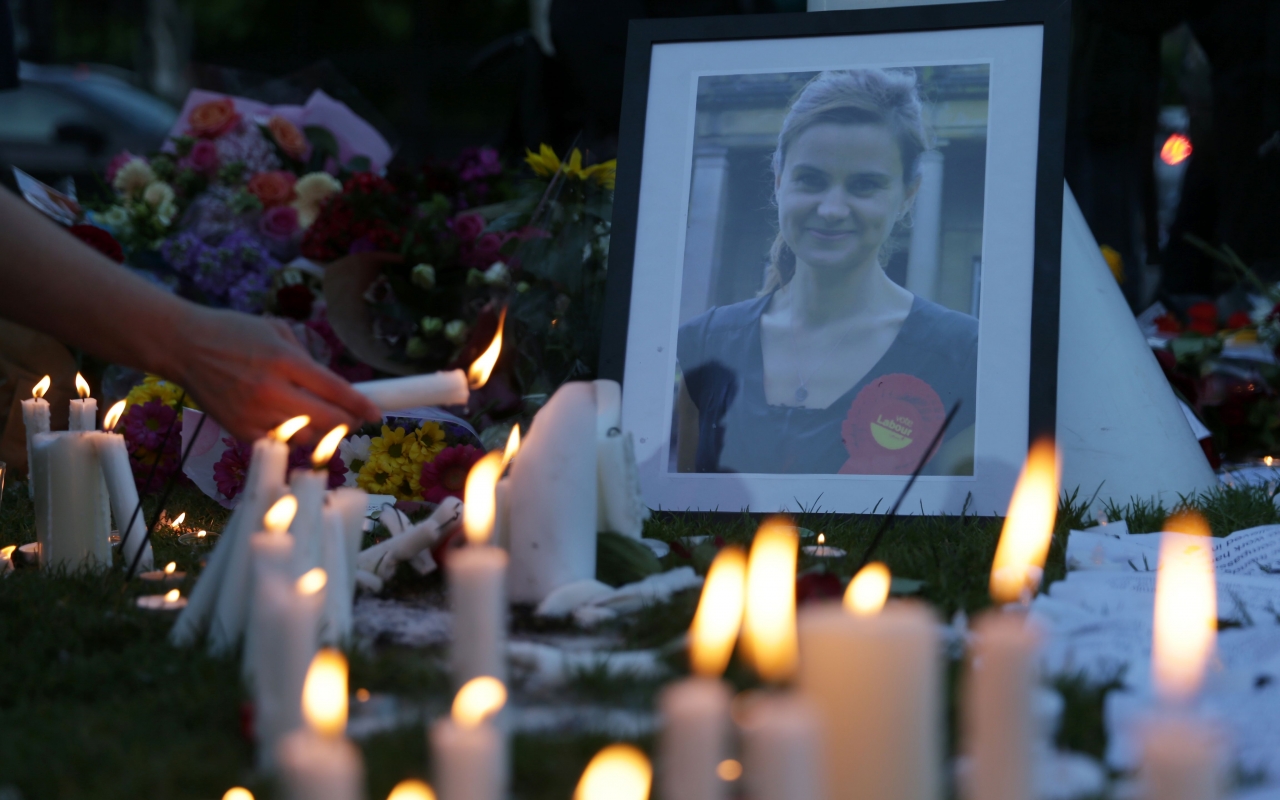Months after the tragic murder of Jo Cox, her killer, Thomas Mair, is now being labelled as a ‘terrorist’ by some papers and media outlets. Those that aren’t using that word are being repudiated by their critics. But the arrival at reports of a ‘white terrorist’ have been delayed, as after the attack restraint was applied over the use of the ‘T-word’, from almost all news outlets. It could be asked why the media was so cautious in this case, yet has been much more willing to imply acts of terror when perpetrated by Islamic extremists.
The comparison of the tragic murder of Lee Rigby on a South London street in May 2013 exemplifies the willingness of the media to use the phrase ‘terrorism’ when it conforms to preconceptions of Islamic fundamentalism. The killers are reported to have shouted ‘Allahu Akbar’ as they brutally murdered Rigby, and it’s not overly tenuous to compare this to Mair allegedly shouting ‘Britain First’ as he attacked Jo Cox. Both Rigby’s killers and Mair had histories of mental health problems, which were publicly disclosed soon after both attacks. However, Rigby’s murderers, Michael Adebolajo and Michael Adebowale, were instantly titled ‘terrorists’, or ‘suspected terrorists’ in the most prudent reports. Of course, this attack was witnessed and filmed by many, whereas details were slightly unclear after Jo Cox’s killing. But Mair described himself as a ‘political activist’ as he was arrested, making it very clear his reprehensible killing qualified as a terror attack. Yet the immediate mention of the word ‘terrorist’ was scarce among British media.
While ‘terrorism’ may seem like a clear-cut definition of events such as the 9/11 attacks, in reality it is a notoriously vague notion, and should not be carelessly attributed to incidents, as the consequences can be immense. After Mair’s attack, reluctance to report the killing as a terror attack is understandable, as with the EU referendum looming, such rhetoric could be considered a part of the rampant hyperbole surrounding the In/Out debate, and disrespectful towards Jo Cox’s memory. But this level of restraint isn’t seen in attacks committed by foreigners, or Islamic extremists, as after decades of attacks with such a basis, the word ‘terrorism’ now comfortably fits this prejudice. The ease at which the media can report a Muslim attacker as a terrorist has enormous repercussions. A study by Michael Jetter in 2014 proved that sensationalist reports of terrorism encourage further violence. Frantically printing the word ‘terrorist’ is promoting terror, and consequently somewhat fulfils the aims of the attackers.
As it has become clear that Mair was a right-wing fanatic, with a collection of Nazi literature at his home, who meticulously planned a politically aggravated attack, some news outlets have found it safe to label him a terrorist. But the attack has shown how when a white, British man commits an atrocious attack, the immediate sensationalism in the media can be avoided. This exception should be extended, as the race and religion of attackers are not determining factors of whether a politically motivated murder is a terror attack.
Hugo Jones
(Image courtesy of the New Statesman)

